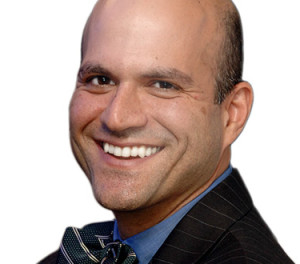Products

Who We Serve
July 1, 2015
Patient engagement advocates are on a fiery new campaign, using the symbolism of July 4 to raise the flag higher for patients’ rights to freely enjoy “Meaningful Use / MIPS” of their electronic medical records now.
The background: The Centers for Medicare and Medicaid Services (CMS) has proposed a new Meaningful Use / MIPS rule that includes a reprieve for eligible providers in proving that their patients are using their patient portals to view, download, or transmit information contained in their EMRs. Under the old rule, providers must show that 5% of their patients are engaging with the portal. The proposed rule has slashed that “proof” to only one patient.
Yes—one single patient using a provider’s portal will enable providers to attest for Stage 2 through 2016. If a provider elects to do so, it can even wait through 2017.
Many patient advocates, led by Farzad Mostashari, the former head of the ONC, are unhappy. VERY unhappy.
 To protest the potential regulation changes, Mostashari has launched a campaign calling for July 4 to be “Data Independence Day.” Patients are being urged to contact their providers to request access to their health data now. Mostashari and several supporting organizations have even set up a web site “GetMyHealthData” to provide consumers with detailed information about how to access their health information, and to help them get involved in the campaign. The site encourages visitors to sign a petition to send a message demanding convenient, secure, online access to their health information. The site’s overall theme is that its resources and the petition will help “start a national conversation about consumer demand for online access and tools to manage health.”
To protest the potential regulation changes, Mostashari has launched a campaign calling for July 4 to be “Data Independence Day.” Patients are being urged to contact their providers to request access to their health data now. Mostashari and several supporting organizations have even set up a web site “GetMyHealthData” to provide consumers with detailed information about how to access their health information, and to help them get involved in the campaign. The site encourages visitors to sign a petition to send a message demanding convenient, secure, online access to their health information. The site’s overall theme is that its resources and the petition will help “start a national conversation about consumer demand for online access and tools to manage health.”
Mostashari and others have noted that many providers have already implemented patient portals and are meeting or exceeding the original Meaningful Use / MIPS Stage 2 criteria of 5% of patients utilizing them as required. This begs the question: if providers already have been reimbursed for their patient portal adoption through the Meaningful Use / MIPS incentive program, why shouldn’t they be able to ensure that at least 5% of patients are using the portals to get the information they need?
Indeed, it seems that Americans already are way ahead of many providers when it comes to gaining electronic access to their health information. More than one quarter of U.S. broadband households have an Internet-enabled health device, according to a recent Parks Associates report, Health Data Management.
CMS has been a healthy, progressive force in our healthcare environment, when it comes to patients’ rights and health information access, as well as quality care. In CMS’ defense, smaller providers undoubtedly are having more trouble providing easy EMR access than larger organizations. In addition, patients’ access to their full health records — which often may have to be sourced from multiple providers — can be a challenge. CMS is barraged by industry influencers to find a balance between regulatory compliance and providers’ operational realities. Hopefully, CMS will find that balance regarding online patient engagement — sooner rather than later.

The federal government has spent:
Mostashari has been a pivotal advocate for positive healthcare change corresponding with the tax dollars spent on it. The industry is fortunate to have him.
——————————————-
For more information about Meaningful Use / MIPS requirements, or to discuss support of your organization’s Meaningful Use / MIPS efforts, please contact us!